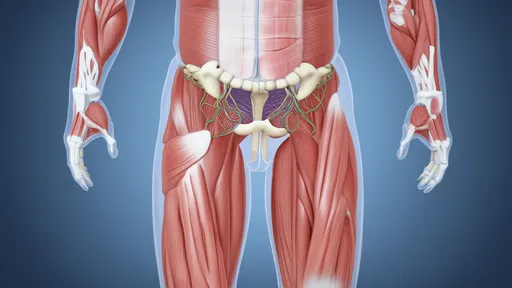For women looking to build muscle, nutrition plays a pivotal role in achieving optimal results. Unlike men, women face unique physiological challenges when it comes to muscle growth, including hormonal fluctuations and differences in metabolism. A well-structured diet, combined with strategic supplementation, can help women overcome these hurdles and maximize their gains. The key lies in understanding the right balance of macronutrients, micronutrients, and timing to support muscle repair and growth.
Protein intake is often the first consideration for anyone aiming to increase muscle mass. Women, in particular, may need to pay closer attention to both the quantity and quality of protein they consume. While general recommendations suggest 1.6 to 2.2 grams of protein per kilogram of body weight for muscle growth, some women may benefit from the higher end of this range, especially during intense training phases. High-quality sources such as lean meats, eggs, dairy, and plant-based options like lentils and quinoa should be prioritized. Additionally, spreading protein intake evenly throughout the day can enhance muscle protein synthesis, making it easier for the body to utilize amino acids effectively.
Carbohydrates are another critical component of a muscle-building diet, yet they are sometimes undervalued in female fitness circles. Carbs provide the energy required for strenuous workouts and help replenish glycogen stores post-exercise. Women engaging in resistance training or high-intensity workouts should aim for complex carbohydrates like sweet potatoes, brown rice, and oats. These not only fuel performance but also support recovery by preventing muscle breakdown. Timing carbs around workouts—such as consuming a mix of carbs and protein before and after training—can further optimize results.
Fats should not be neglected, as they play a vital role in hormone production, including testosterone and estrogen, which influence muscle growth. Healthy fats from avocados, nuts, seeds, and fatty fish like salmon contribute to overall metabolic health and can aid in reducing inflammation. For women, maintaining balanced hormone levels is especially important, as imbalances can hinder progress. Incorporating a moderate amount of healthy fats into each meal ensures sustained energy and supports the body’s anabolic processes.
Hydration is another often-overlooked factor in muscle development. Water is essential for nutrient transport, joint lubrication, and temperature regulation during workouts. Dehydration can lead to decreased performance, slower recovery, and even muscle cramps. Women should aim to drink at least half their body weight in ounces of water daily, with additional intake around training sessions. Electrolytes, particularly sodium, potassium, and magnesium, become even more important for those who sweat heavily or train in hot environments.
Beyond macronutrients, micronutrients like iron, calcium, and vitamin D are crucial for female athletes. Iron deficiency is more common in women due to menstruation, and low levels can result in fatigue and impaired performance. Incorporating iron-rich foods such as red meat, spinach, and fortified cereals, paired with vitamin C to enhance absorption, can help maintain optimal levels. Calcium and vitamin D work synergistically to support bone health, which is foundational for strength training. Dairy products, leafy greens, and sunlight exposure are excellent ways to meet these needs.
Supplements can serve as valuable tools to fill nutritional gaps or enhance performance. Whey or plant-based protein powders offer convenience for meeting daily protein targets, especially for those with busy lifestyles. Creatine monohydrate, one of the most researched supplements, has been shown to improve strength and lean muscle mass in women just as effectively as in men. Branched-chain amino acids (BCAAs) may also aid in reducing muscle soreness and accelerating recovery, though whole food sources should always take precedence.
Finally, listening to the body’s signals is paramount. Women’s nutritional needs can vary significantly based on factors like age, activity level, and hormonal cycles. Tracking progress, adjusting intake as needed, and consulting with a nutritionist or dietitian can provide personalized guidance. Building muscle is a gradual process, but with the right nutritional foundation, women can achieve strong, sustainable results that align with their fitness goals.

By /Jul 18, 2025

By /Jul 18, 2025

By /Jul 18, 2025

By /Jul 18, 2025

By /Jul 18, 2025

By /Jul 18, 2025

By /Jul 18, 2025

By /Jul 18, 2025

By /Jul 18, 2025

By /Jul 18, 2025

By /Jul 18, 2025

By /Jul 18, 2025

By /Jul 18, 2025

By /Jul 18, 2025

By /Jul 18, 2025

By /Jul 18, 2025

By /Jul 18, 2025

By /Jul 18, 2025